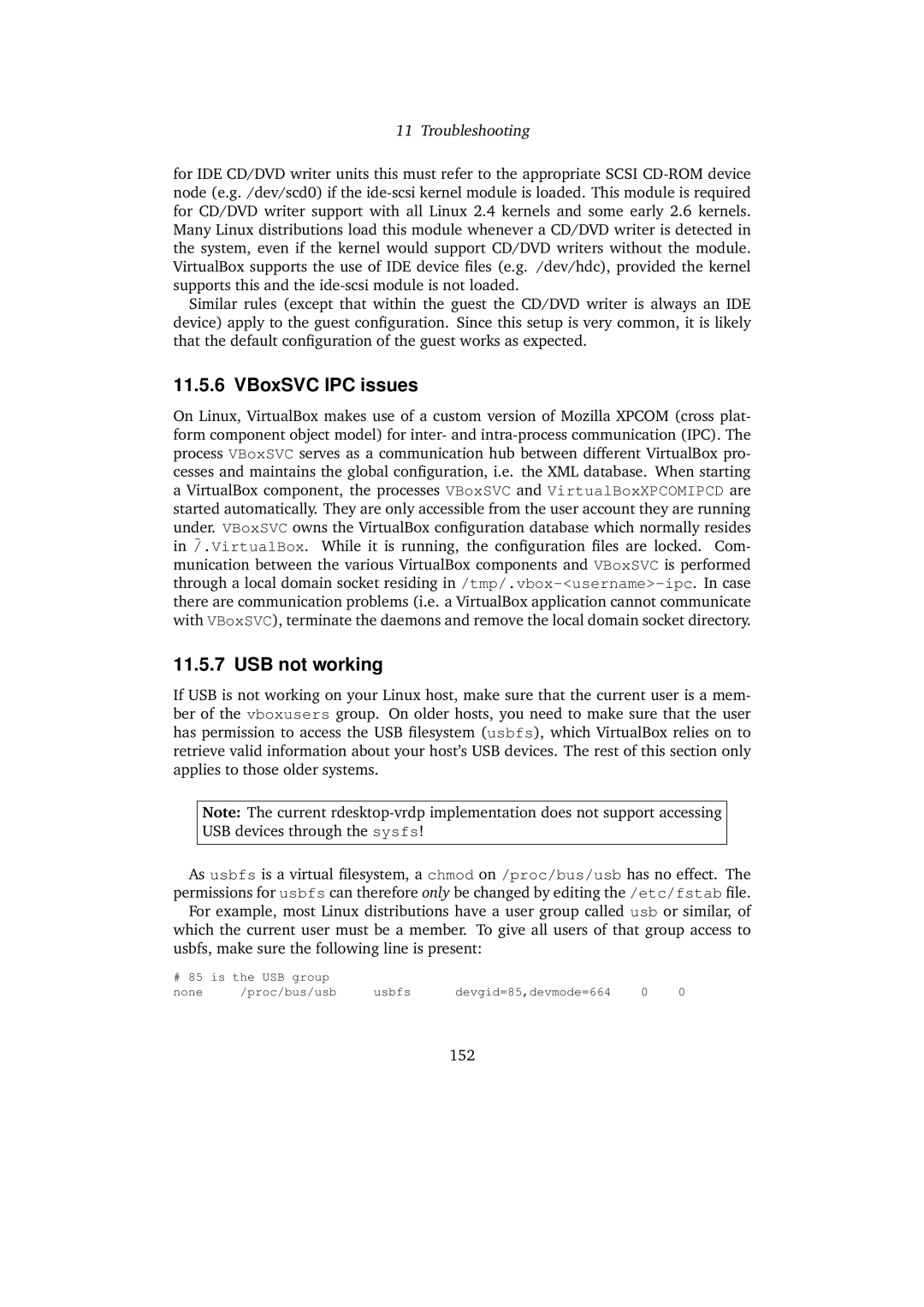11 Troubleshooting
for IDE CD/DVD writer units this must refer to the appropriate SCSI
Similar rules (except that within the guest the CD/DVD writer is always an IDE device) apply to the guest configuration. Since this setup is very common, it is likely that the default configuration of the guest works as expected.
11.5.6 VBoxSVC IPC issues
On Linux, VirtualBox makes use of a custom version of Mozilla XPCOM (cross plat- form component object model) for inter- and
in ˜. While it is running, the configuration files are locked.
munication between the various VirtualBox components and VBoxSVC is performed through a local domain socket residing
11.5.7 USB not working
If USB is not working on your Linux host, make sure that the current user is a mem- ber of the vboxusers group. On older hosts, you need to make sure that the user has permission to access the USB filesystem (usbfs), which VirtualBox relies on to retrieve valid information about your host’s USB devices. The rest of this section only applies to those older systems.
Note: The current
As usbfs is a virtual filesystem, a chmod on /proc/bus/usb has no effect. The permissions for usbfs can therefore only be changed by editing the /etc/fstab file.
For example, most Linux distributions have a user group called usb or similar, of which the current user must be a member. To give all users of that group access to usbfs, make sure the following line is present:
# 85 is the USB group
none | /proc/bus/usb | usbfs | devgid=85,devmode=664 | 0 | 0 |
152
